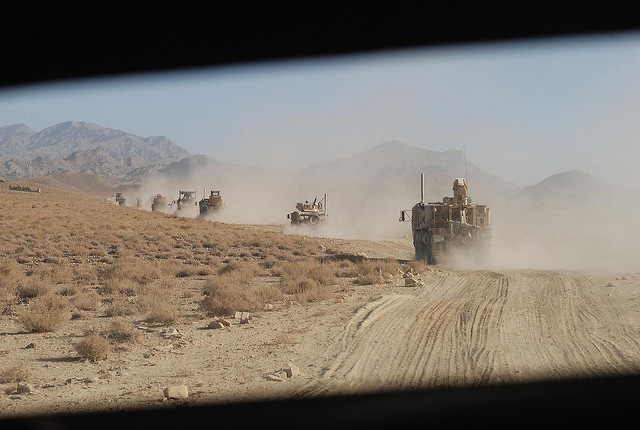
The number of US soldiers who will remain in Afghanistan by the year’s end was upwardly revised, once again, by President Obama, who warned that gains by the Taliban and terrorist organizations continue to threaten the stability of the country.
In a statement issued from the Roosevelt Room on Wednesday, the President said he would leave 8,400 US troops in Afghanistan “into next year through the end of [his] administration.” Obama said he made the decision based on recommendations from top military brass and his national security staff.
There are roughly 10,000 troops currently stationed in the country — the last remnants of America’s longest running war.
The White House had initially planned to reduce that number to fewer than 1,000 by the end of 2016. It revised that timetable last October, when President Obama said he intended to leave 5,500 soldiers deployed into 2017. Within months of revealing it, the administration began wavering on that figure, too.
During testimony before the Senate Armed Services Committee in January, the now-retired Commander of US forces in Afghanistan, Gen. John Campbell, said the 5,500 number was “based on certain assumptions.”
“If the Afghans cannot improve,” he stated, “we’re going to have to make some adjustments and that means that number will most likely go up.”
On Wednesday, President Obama noted that “the security situation in Afghanistan remains precarious” and that local security forces are still working to improve their capabilities.
He said that the remaining US soldiers on the ground will continue a two-pronged mission: of training and advising the Afghan army and police, and providing military support during counter-terror operations.
The administration formally declared an end to combat operations in Afghanistan in December 2014. Over the last year alone, 38 Americans have been killed in hostilities in the country.
On Wednesday, Obama also made a direct appeal to the Taliban to seek diplomacy.
“The only way to end this conflict,” he said, “is through a lasting political settlement between the Afghan government and the Taliban.”
“You have now been waging war against the Afghan people for many years. You have been unable to prevail,” the president said, adding that the “US will continue to support an Afghan led reconciliation process.”
In his remarks, President Obama also offered a rare admission of the US role in exacerbating the ongoing global refugee crisis. Although most of the blame for the migrant influxes has been placed on the half-decade long civil war in Syria, the president noted that the number of Afghans who have fled their homes is “often overlooked.” At one point last year, about 15 percent of the hundreds of thousands of people who sought refuge in Europe by crossing the Mediterranean had come from Afghanistan.
News that troop withdrawals in Afghanistan would grind to a near-halt delighted hawkish lawmakers. Over the weekend, Sens. John McCain (R-Ariz.) and Lindsey Graham (R-SC) had urged the White House to not significantly reduce troops numbers.
“Please do not cut these troop level sin half. If you do, Afghanistan’s going to become Iraq very quickly,” Graham said on CBS Sunday morning.
Sen. John McCain (R-Ariz.) on Wednesday lodged his approval with the president’s decision on Twitter.
“I welcome @POTUS reversal on troop drawdown in #Afghanistan — any drawdown should be based on conditions not calendar,” the senator tweeted.
Join us in defending the truth before it’s too late
The future of independent journalism is uncertain, and the consequences of losing it are too grave to ignore. To ensure Truthout remains safe, strong, and free, we need to raise $46,000 in the next 7 days. Every dollar raised goes directly toward the costs of producing news you can trust.
Please give what you can — because by supporting us with a tax-deductible donation, you’re not just preserving a source of news, you’re helping to safeguard what’s left of our democracy.